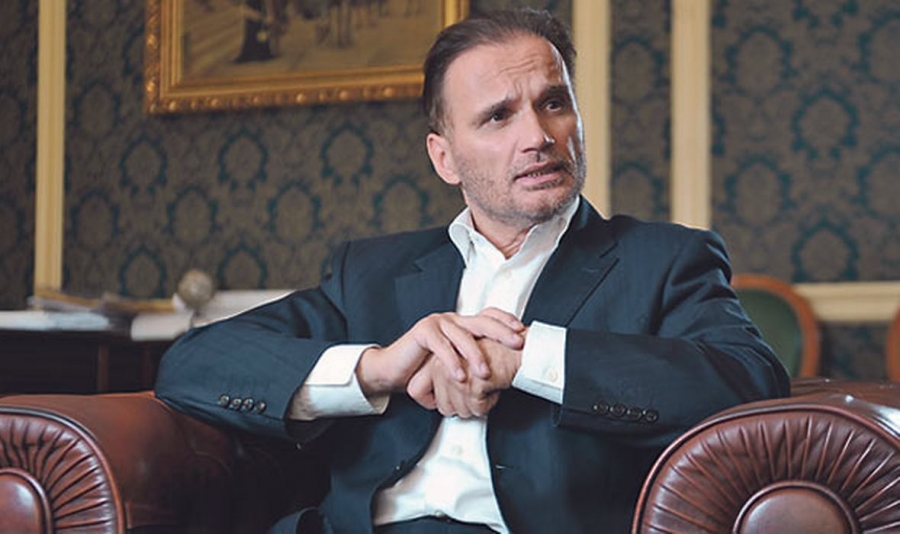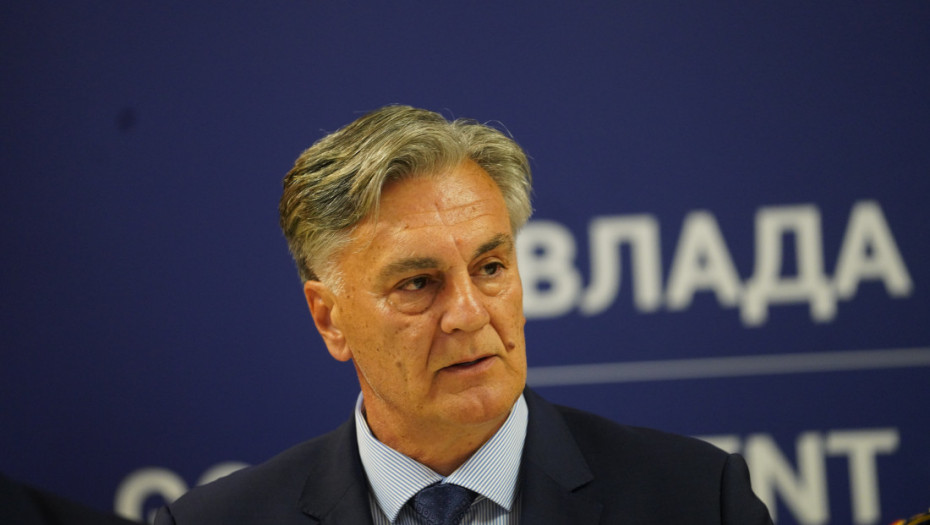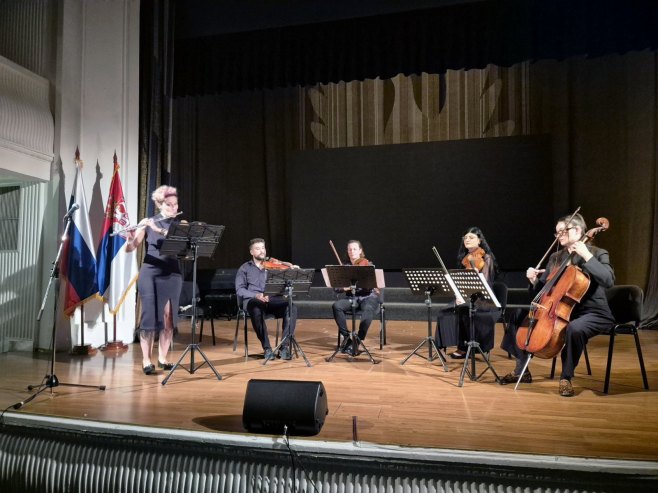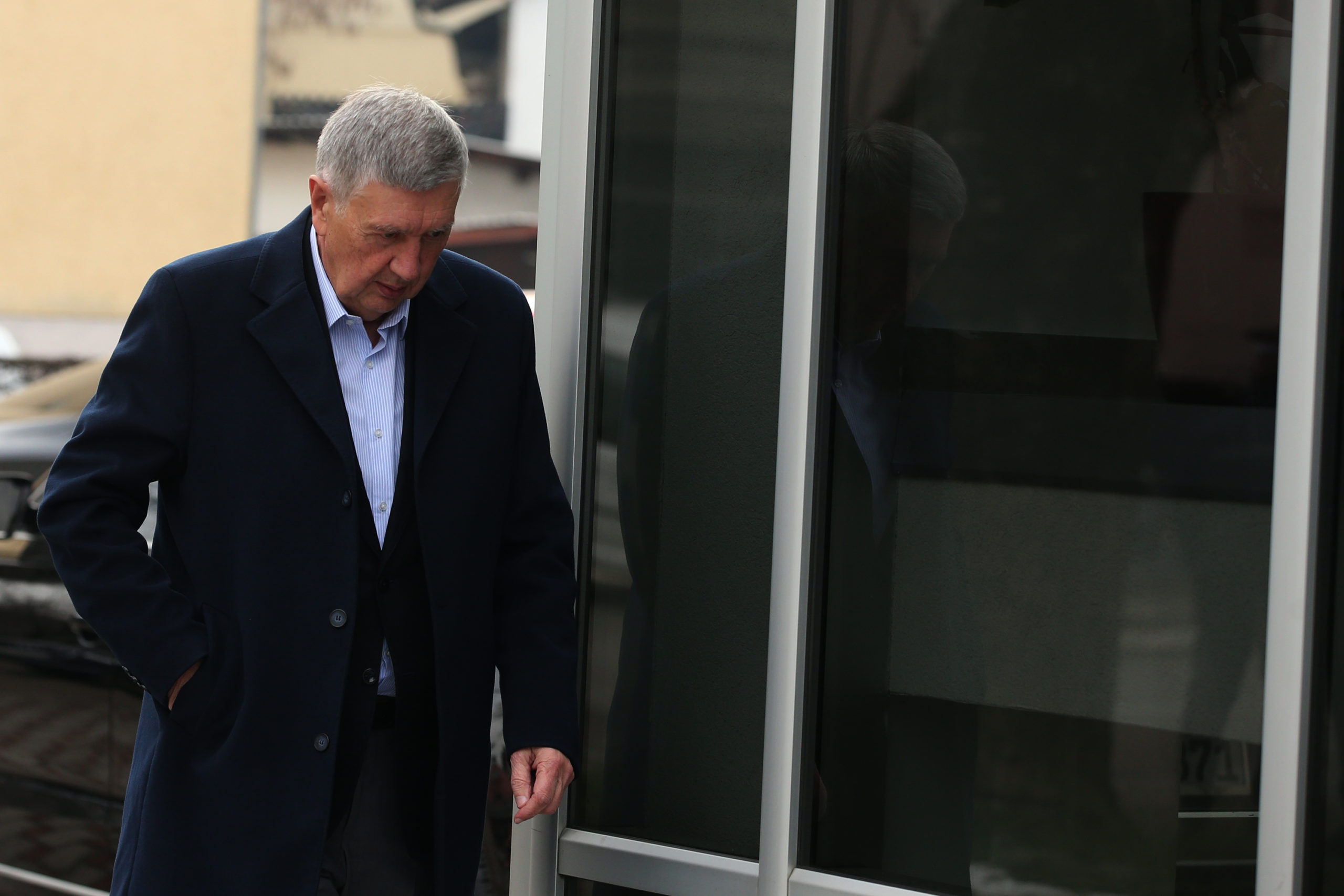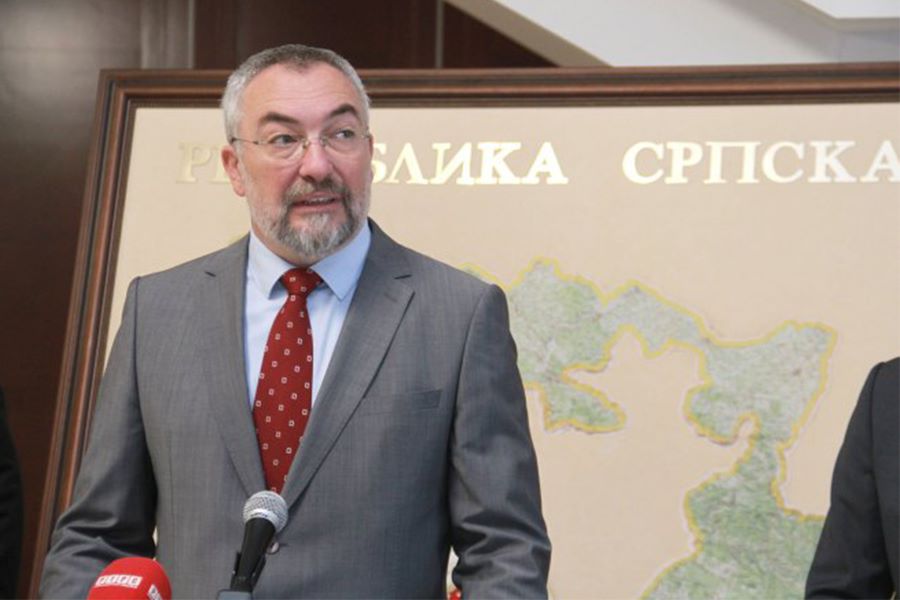Anto Nobilo, the attorney for Milorad Dodik, President of Republika Srpska, asserted that if Dodik, as the elected representative of Republika Srpska, were to be found guilty by the Court of BiH, it would mean that the court is deeply interfering with the executive branch, removing the entity’s president and nullifying the will of the people expressed through elections, which would be a precedent with significant political consequences.
Nobilo stated that all legal analyses indicate that Christian Schmidt is pushing for de facto amendments to the constitution without the procedures prescribed by the constitution, and has decided to move his political opponent through criminal proceedings.
“He himself amended the criminal law and sought the prosecution of his political adversary. In doing so, he has channeled key political issues into the criminal judicial process and expects the court to eliminate his political opponent from political life,” Nobilo said.
He highlighted that the elimination of political opponents through judicial processes is characteristic of autocratic regimes.
Nobilo questioned how Schmidt intends to develop democracy in BiH using autocratic methods.
“The aim of this process is purely political, that is, the elimination of Dodik from the political life of BiH, and that cannot be denied,” said Nobilo to “Politika”.
He pointed out that there is a clear conflict between Christian Schmidt and Republika Srpska represented by its President Dodik, revolving around the interpretation of the Dayton Agreement and the Constitution of BiH.
“All legal analyses indicate to me that Schmidt is pushing for de facto amendments to the constitution without the constitutionally prescribed procedures. On the other hand, Dodik and the leadership of Republika Srpska are trying to defend the original Constitution of BiH, which they believe guarantees a certain acquired local autonomy for Republika Srpska,” Nobilo explained.
He believes that the background of this escalation lies in the powers concerning who owns the natural resources.
“These are legitimate political questions, but they should be resolved in a constitutionally and legally prescribed manner through political means,” said Nobilo.
His view, and that of attorney Goran Bubić, who also represents Dodik, is that the President of Republika Srpska has not committed a criminal act and that the court should acquit him.
According to him, the main direction of the defense in the case initiated against Dodik for disregarding Schmidt’s decisions is to prove that Schmidt does not have the ability to enact laws, especially not criminal ones, under the Dayton Agreement or the Bonn Powers, and that Schmidt was not appointed in accordance with international law.
“If the court nevertheless decides that Schmidt has the right to enact criminal law, the defense will be narrowed down to criminal legal frameworks, proving that Dodik, potentially, committed disobedience to Schmidt’s decisions before the ‘Schmidt’s law’ came into effect. Criminal law cannot act retroactively,” explained Nobilo.
He added that they will prove that this “disobedience” does not have all the necessary characteristics to be a criminal offense.
According to his opinion, the level of culpability of Dodik, who is simply exercising his constitutional powers, is minimal, and the act did not cause harmful consequences.
Nobilo emphasized that it is a minor offense which then cannot be a criminal act at all and stated that Dodik is being criminally prosecuted for disobeying Schmidt’s decisions, a section of the criminal law personally written by Schmidt.
He noted that if Dodik as the elected representative of Republika Srpska were to be declared guilty, it would open the possibility of imposing a ban on holding any political or state function, thereby eliminating him from the political life in BiH.
“In any case, we would get a situation where the court deeply penetrates the executive branch and removes the president of the entity, thus nullifying the will of the people expressed in the last elections. It would be a significant precedent with equally significant political consequences,” Nobilo believes.
He says the defense will attempt to prove that Schmidt was not appointed in the procedure prescribed by international agreements, that Schmidt does not have legislative powers, and that he acts contrary to the Constitution of BiH.
Nobilo stressed that these are all paramount constitutional questions on which the current functioning of BiH rests.
He believes that the very fact that BiH still has an international administration 28 years later indicates that the model by which BiH was managed is clearly not successful, and reminded that after Germany’s capitulation in 1945, the occupation by Western allies lasted only four years.
“It’s time to return full authority to the people. I always genuinely believe in the power of the people who through their elected representatives can solve any problem in BiH. After all, power arises from the people and belongs to the community of free and equal citizens. BiH cannot enter the EU with a high representative acting as a colonial governor,” concluded Nobilo.
Source: RTRS



